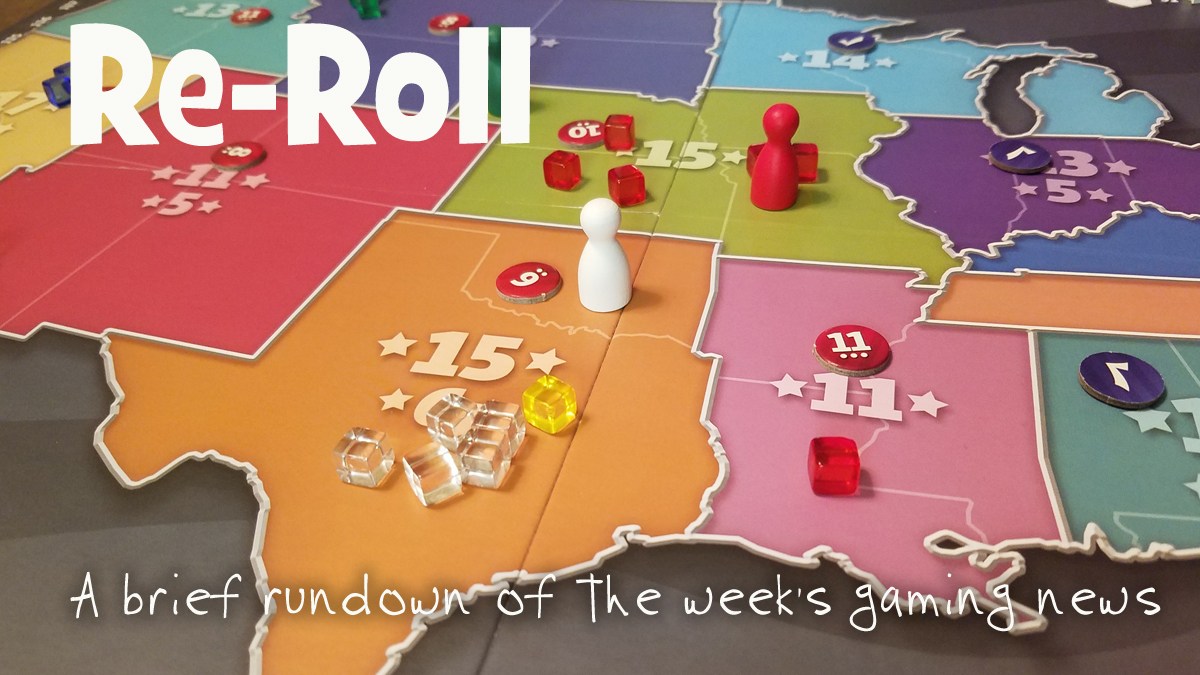Today’s stack is a multimedia presentation: a couple books, a movie, and some songs!
What if you could fast-forward to the parts of life you’re looking forward to and skip the hard parts, or the boring parts? What if you could slow down time so you could catch up on things, speed up time to get to the future? Of course, pretty much every story we read or watch about time travel tells us it’s a bad idea, but we keep thinking about it anyway, don’t we?
“The Good Part” by AJR
Let’s start with a song. AJR is a pop band started by three brothers (Adam, Jack, and Ryan Met) that my middle kid introduced to the rest of us, and they have a knack for writing catchy, upbeat songs, often about not-so-happy feelings: a lot of songs are about getting older but not being grown-up. “The Good Part” is a song about wondering when the good part comes: is this what I’ve been waiting for? Is there something better yet to come? “So can we skip to the good part?”
Well, now let’s take a look at some stories about skipping ahead…
Addie Bell’s Shortcut to Growing Up by Jessica Brody
The first book on today’s list is a middle grade fiction book. It’s actually from several years ago—which maybe is appropriate once I explain the plot. Addie Bell is always looking for shortcuts—it gets her in trouble sometimes but she figures, why waste time on boring things when you can be more efficient and just get to the real action? She’s just turning 12, but she just can’t wait to be 16 like her older sister Rory: she’ll be allowed to wear makeup and drive and hang out at the local coffee shop and maybe even have a boyfriend. Her best friend, Grace, doesn’t seem to get this, and is always suggesting activities that seem, well, a bit too babyish for Addie.
Well, one birthday wish later, Addie wakes up and discovers that she’s sixteen. After the initial confusion, she’s so excited—her closet is filled with amazing clothes, her dresser is stocked with awesome makeup, and her parents even finally got her that dog she’d been begging for for years. She has a cute little car, and apparently she’s a cool kid now, thanks to a makeup tutorial YouTube channel she runs with Clementine Dumont, the most popular girl in high school.
But—and there’s always a but, right?—her mind is still the just-turned-twelve Addie. She doesn’t remember the last four years of her life that she skipped over. Aside from causing problems in school because she can’t do (or even pronounce) trigonometry and she’s definitely not ready for advanced French, she can’t even enjoy some of the things that she’s been looking forward to. She doesn’t know how to do her makeup or drive, and it turns out coffee tastes horrible.
The book reminds me a little of any of those classic body-swap stories where a kid and a grown-up trade places, though in this case Addie has just traded places with her own older self. And there’s also a good bit of Mean Girls sprinkled in: Addie soon realizes that the choices this particular version of herself made in the past has led to popularity but caused some sort of rift between her and Grace that seems impossible to repair. It’s not completely unpredictable, but it had a lot of fun moments.
The funny thing to me is that my own kid, who’s close to Addie’s age, is in no rush to get older; if anything, they’d prefer to push pause and just stay small for a little bit longer. (Maybe my next kids’ book read will be Forever Twelve by Stacy McAnulty—is it going to be a cautionary tale about wanting to stay a kid?)
Time’s Agent by Brenda Peynado
This sci-fi novella plays around with time in some unique ways. The premise is the discovery of pocket worlds, small dimensions that contain partial worlds, often running at a different relative time. There’s a scientific institute that found ways to detect portals to these other worlds, sending agents to research and catalogue them and develop new technology for managing them. The pocket worlds seemed to have spun off from our own dimension, so you might encounter living dinosaurs in one, or plant life that had diverged in new directions. Raquel Petra, the narrator, was an archaeologist, called in whenever there was evidence of human life, and her dream was to locate the Taino people, her ancestors, whose artifacts were sometimes linked to these pocket worlds. The holy grail of the institute was to find a second full dimension—an entire parallel universe with a second Earth where maybe we could start over.
Raquel is accidentally pulled into a pocket world where the time passes extremely quickly relative to “standard,” and when she returns—only a few seconds ago in her own experience—forty years have passed. But this story is definitely not about skipping to the good part. Her own disappearance sparked the decline of the institute’s influence, and now pocket worlds are controlled by corporations. Some are artificially created: slow-time worlds that serve as refrigerators because anything you put in them could be fresh for years; small worlds used for transportation: just load them full of things, and then have microdrones carry the tiny portal point to the destination; worlds used as trash dumps; worlds rented out as too-small sleeping spaces for the impoverished to keep them off the streets. Any newly discovered world is immediately claimed by corporations to harness their resources, maybe as vacation destinations or maybe as land to be farmed. People desperate for work indenture themselves in fast-time worlds, working their whole lives away in a matter of months in Earth-standard time to produce goods for the wealthy.
It’s a dystopian vision, and Raquel is lost. Her institute badge no longer confers the authority it used to, and she’s sent on a series of jobs that feel like the opposite of her old role—she’s shutting down worlds that have been deemed too costly to maintain. Her wife Marlena has been in another pocket world, tied to an amulet that Raquel wears as a necklace, and when she appears and discovers what has happened, she retreats back into the pocket world and refuses to come out. The story really focuses on Raquel and the tension between her ideals and this world that has come about, in part because of her own actions. She attempts to connect to her past and to find a way forward, but there are things she just can’t let go of.
I won’t lie: this was a hard book to read, even though it’s a fairly short story. The world that Raquel finds herself in may be imagined, but it feels all too real. If pocket world technology existed and corporations got their hands on it, this is how they would use them. I did find the world-building really fascinating, and I think Peynado did a great job of thinking through the possibilities of pocket worlds, particularly with different time rates in them, but I kept wondering if the book was going to have any sort of happy—or at least not terrible—ending, because it felt like there was so much loss that it would be hard to balance that out. It’s definitely worth reading, especially if you like stories about time or multiverses, but just be aware that a lot of the story is very bleak.
Things Will Be Different
Okay, we’ll end with a movie, one that involves its own sort of pocket world. Joseph and Sidney, two adult siblings, have pulled off some sort of heist and need to lay low until things cool down. Joseph brings them to an old farmhouse, where they enter a closet and come back out in the same house but at a different time altogether. The plan is to stay here for a couple of weeks, and then go back to their own time/world and check if they’re clear. The movie is a little more horror-ish than what I usually watch—I was curious about it because of the time travel—but it’s also not really a horror movie, either.
This other world seems entirely devoid of other people—it’s just the two of them, rambling around this big house, trying to catch up with each other and rebuild their strained relationship. That is, until the day comes when they’re supposed to make their return. Joseph discovers that the door to the old mill, which has been locked the whole time they’ve been there, is wide open, and Sidney finds the closet door boarded up.
Things get weird.
What was a safehouse has now become a prison, and the relationship between brother and sister devolves. They’re waiting for somebody to arrive but have no idea when that may happen, and the powers-that-be that enabled these time tricks have their own agenda.
The movie has an unsettling pacing: there are long stretches that convey the tedium and boredom that Joseph and Sidney experience, but also rapid action sequences. Throughout it all is a sense of unease: even when they successfully make it to the other time, you can feel a tension, that something is going to go wrong but you don’t know exactly what. The ending felt oddly rushed, particularly in contrast to the time spent letting the two of them stew in the safehouse, with a little too much important information squeezed into the last ten minutes of the film. But I will say that the ending wasn’t at all what I expected.
If you’re looking for a tense, mind-bending movie and you like a bit of creepiness mixed with your time travel, check out Things Will Be Different. It was released on streaming and in select theaters on Friday, October 4.
Four of Two by They Might Be Giants
With the Rip Van Winkle motifs in a couple of today’s stories (with a specific reference in Addie Bell’s Shortcut), I thought of one other song about skipping ahead. Here’s the kid-friendly version, which is how I first encountered the song myself.
I didn’t know until looking for this track that there was an older version of this song, originally made for TMBG’s Dial-A-Song, with a much more morbid ending (and one that doesn’t have the Rip Van Winkle storyline).
My Current Stack
I’ve got a couple of comics under my belt and I finished reading The Editors by Stephen Harrison a little while back, so that’s on my list to write about sometime soon. I’m currently reading A House Like an Accordion by Audrey Burges, a strange story about a family with some strange abilities related to drawing—but I don’t know where the story is headed yet, so we’ll see!
Disclosure: I received review copies of the books covered in today’s column, as well as an advance screener of Things Will Be Different. Affiliate links to Bookshop.org help support my writing and independent booksellers.








